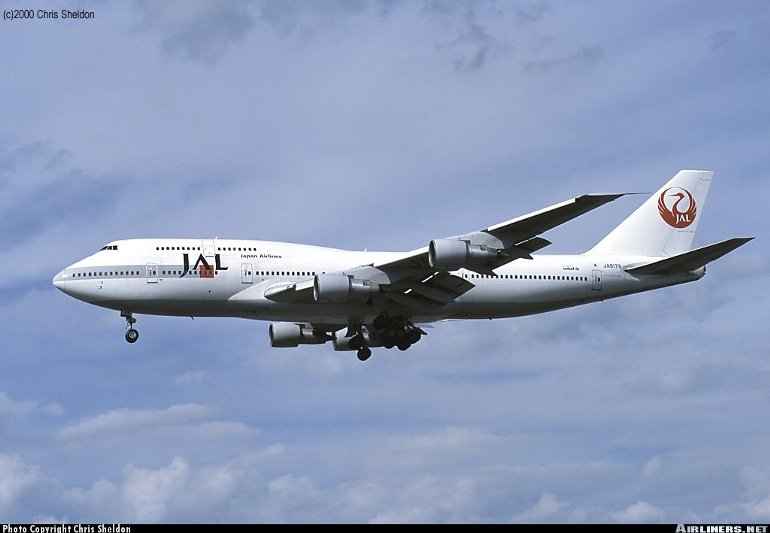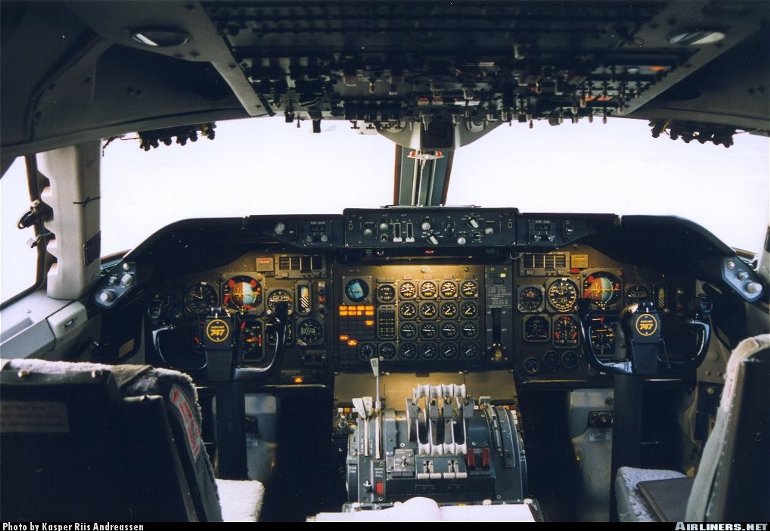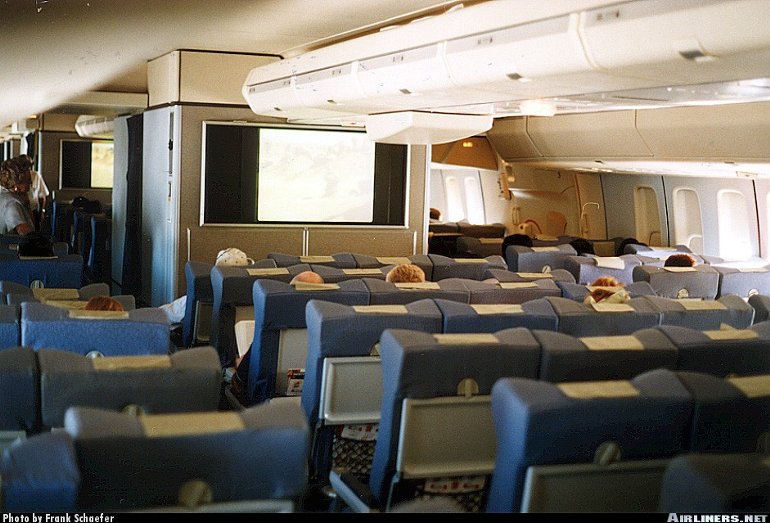Aircraft Technical Data
Boeing 747-300



| Details | |
| Country of Origin | United States of America |
| Type | Long range high capacity widebody airliner |
| History | Boeing's 747-300 model introduced the distinctive stretched upper deck which can seat up to 69 economy class passengers. The 747-300 was the end result of a number of Boeing studies which looked at increasing the aircraft's seating capacity. Ideas studied included fuselage plugs fore and aft of the wing increasing seating to around 600, or running the upper deck down the entire length of the fuselage. In the end Boeing launched the more modest 747SUD (Stretched Upper Deck) with greater upper deck seating on June 12 1980. The 747SUD designation was soon changed to 747EUD (for Extended Upper Deck), and then 747-300. The new model first flew on October 5 1982 and was first delivered to Swissair on March 28 1983. Other customers included UTA, Saudia, SIA, Qantas and Cathay. Compared to the -200, the -300's upper deck is stretched aft by 7.11m (23ft 4in), increasing economy class seating from 32 to a maximum of 69. The lengthened upper deck introduced two new emergency exit doors and allows an optional flightcrew rest area immediately aft of the flightdeck to be fitted. Access is via a conventional rather than spiral staircase as on the earlier models. Otherwise the 747-300 is essentially little changed from the 747-200 and features the same takeoff weight and engine options. 747-300 variants include the 747-300M Combi and the short range 747-300SR built for Japan Air Lines for domestic Japanese services. The extended upper deck was also offered as a retrofit to existing 747-100/-200s, although the only airlines to take up this option were KLM and UTA. KLM has since converted two to freighters, resulting in the first 747 freighters with the stretched upper deck. Also, two JAL 747-100s were delivered new with the extended upper deck. |
| Powerplants | Four 243.5kN (54,750lb) Pratt & Whitney JT9D7R4G2 turbofans, or 236.3kN (53,110lb) RollsRoyce RB211524D4s, or 233.5kN (52,500lb) General Electric CF650E2s, or 252.2kN (56,700lb) CF6-80C2B1s. |
| Performance | Max speed (with CF6-80s) 996km/h (538kt), max cruising speed 939km/h (507kt), economical cruising speed 907km/h (490kt), long range cruising speed 898km/h (485kt). Range with 400 passengers and reserves with JT9Ds 11,675km (6300nm), with CF650s 11,297km (6100nm), with CF6-80s 12,408km (6700nm), with RB211s 11,575km (6250nm). |
| Weights | Operating empty 174,134kg (383,900lb) with JT9Ds, 175,721kg (387,400lb) with CF6-50s, 176,901kg (390,000lb) with CF6-80s or 178,171kg (392,800lb) with RB211s. Max takeoff 351,535kg (775,000lb), or 356,070kg (785,000lb), or 362,875kg (800,000lb), or 371,945kg (820,000lb), or 377,840kg (833,000lb). |
| Dimensions | Wing span 59.64m (195ft 8in), length 70.66m (231ft 10in), height 19.33m (63ft 5in). Wing area 511m2 (5500sq ft). |
| Capacity | 747-300 - Flightcrew of three, with two pilots and one flight engineer. Typical two class seating arrangement for 470 (50 business class including 28 on the upper deck and 370 economy class) |
| Production | 81 delivered 1983-90 with 78 in service in late 1998. |
| Related Links | Boeing 747-300 |
The backbone of this section is from the The International Directory of Civil Aircraft by Gerard Frawley and used with permission. To get your own copy of the book click here. |
|








